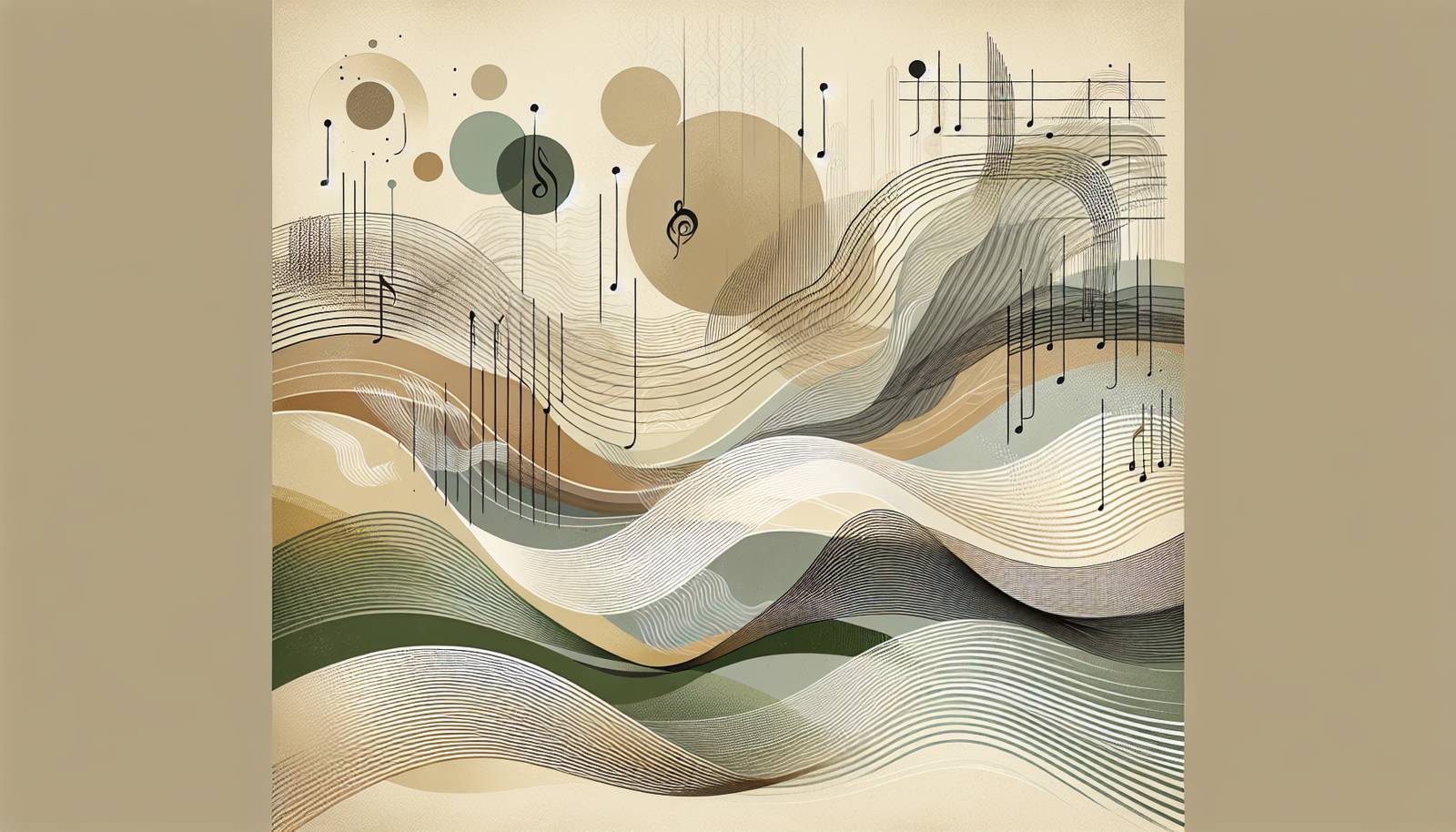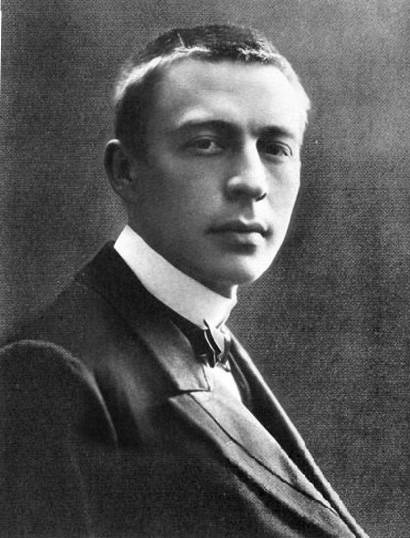
FAQ About Sergei Rachmaninoff

Who was Sergei Rachmaninoff?
Sergei Rachmaninoff was a Russian composer, pianist, and conductor born on April 1, 1873, in Semyonovo, Russia. He is renowned for his emotive music characterized by rich harmonies and expansive melodies. Rachmaninoff is considered one of the finest pianists of his time, influencing the world of classical music through his vivid compositions and exceptional performances.

What are some of Sergei Rachmaninoff's most famous compositions?
Some of Sergei Rachmaninoff's most famous compositions include his piano concertos, particularly the Piano Concerto No. 2 in C minor, and the Piano Concerto No. 3 in D minor. His Rhapsody on a Theme of Paganini and Symphonic Dances are also widely celebrated. Rachmaninoff's works are known for their technical difficulty and emotional depth.

What era did Sergei Rachmaninoff compose in?
Sergei Rachmaninoff composed during the late Romantic era and is often considered one of the last great composers of that period. His works reflect the lush, expressive qualities typical of Romantic music, yet he also integrated elements of modernism in his later compositions.

How did Rachmaninoff's early life influence his music career?
Rachmaninoff was born into a musical family, which nurtured his early interest in music. He began piano lessons at a young age and was enrolled at the Moscow Conservatory where he studied with renowned teachers. Despite a challenging family life and early setbacks, these formative experiences helped Rachmaninoff develop his distinct musical voice and set the stage for his illustrious career.

What was Sergei Rachmaninoff's approach to performance and composition?
Rachmaninoff's approach to performance was highly meticulous; he was known for his precision, stamina, and powerful technique. As a composer, he focused on emotional expression, often composing highly challenging pieces for the piano, enabling the performer to convey a depth of emotion and virtuosity. His work reflects both his skills as a pianist and his compositional creativity.

Why did Rachmaninoff leave Russia?
Rachmaninoff left Russia in 1917 due to the Russian Revolution. The upheaval of the Revolution and the consequent changes to Russian society, particularly the loss of his estate and income, forced him to emigrate. He eventually settled in the United States, where he continued his career as both a composer and performer.

How did living in the United States affect Rachmaninoff's music?
Rachmaninoff's move to the United States influenced his music by introducing him to new audiences and environments. Although he composed less frequently after emigrating, some of his pieces from this period, such as the Rhapsody on a Theme of Paganini and Symphonic Dances, show the blending of his native Russian style with American influences. His performances and recordings during this time significantly expanded his international reputation.

What are the characteristics of Rachmaninoff's music?
Rachmaninoff's music is characterized by its deep emotional intensity, lush harmonies, and elaborate melodic lines. He is known for his ability to convey complex emotions through his compositions, often using expansive pianistic textures and a broad dynamic range. His works are both technically demanding and emotionally resonant, appealing to performers and audiences alike.

What influence did Rachmaninoff have on later composers and musicians?
Rachmaninoff's influence is evident in the works of later composers and musicians who were inspired by his emotive style and technical mastery. His compositions have remained staples in the piano repertoire, influencing pianists across generations to tackle their expressive and technical challenges. Musicians admire his ability to combine romantic lyricism with modern elements, making his legacy enduring in classical music circles.

When and where did Sergei Rachmaninoff die?
Sergei Rachmaninoff died on March 28, 1943, in Beverly Hills, California, United States. He had been suffering from melanoma and passed away just days before his 70th birthday. His death marked the end of a significant era as he was one of the last great Romantic composers.

Did Rachmaninoff write any compositions other than piano concertos?
Yes, besides his famous piano concertos, Rachmaninoff wrote a variety of compositions including symphonies, solo piano works, choral works, operas, and songs. His symphonic poems, choral works like 'The Bells,' and piano preludes are also widely appreciated. His diverse output reflects his broad musical capabilities and interests.

What challenges did Rachmaninoff face in his musical career?
Rachmaninoff faced several challenges throughout his career, including harsh criticism of his early works which led to a period of depression and writer's block. He struggled to balance composing with his demanding schedule as a performer, particularly after relocating to America. Despite these challenges, he overcame them with determination, resulting in a highly successful and influential career.

How did Rachmaninoff's music reflect Russian culture?
Rachmaninoff's music reflects Russian culture through its melodic content, which often draws inspiration from Russian folk songs and Orthodox liturgical music. His use of rich, expansive textures and emotive expression echoes the depth and tradition of Russian classical music, making his works quintessentially Russian in spirit and appeal.

What was the impact of Rachmaninoff's Piano Concerto No. 2?
Rachmaninoff's Piano Concerto No. 2 is considered one of his greatest achievements and a cornerstone of the piano repertoire. Premiered in 1901, it was a significant success and restored Rachmaninoff's reputation after the failure of his Symphony No. 1. It is known for its lyrical themes and technical brilliance, and remains one of his most performed works.

How did Rachmaninoff overcome his depression after the failure of his First Symphony?
Rachmaninoff overcame his depression, induced by the critical failure of his First Symphony, through the help of therapy. He sought the assistance of Dr. Nikolai Dahl, a physician who used hypnosis, and during these sessions, regained his confidence and compositional creativity, eventually completing his celebrated Piano Concerto No. 2.

What piano technique is Rachmaninoff known for?
Rachmaninoff is known for his exceptional piano technique, which included a powerful tone, precise dynamic control, and an expansive reach that enabled him to play complex compositions with ease. His large hands allowed him to achieve broad intervals and intricate fingerwork, contributing to his reputation as a formidable pianist and composer.

Are there any recordings of Rachmaninoff playing his own compositions?
Yes, there are several recordings of Rachmaninoff playing his own compositions, allowing listeners to experience his interpretations firsthand. These recordings include performances of his piano concertos and various solo piano pieces, showcasing his extraordinary skill and profound understanding of his music.

What is the significance of Rachmaninoff's Rhapsody on a Theme of Paganini?
Rachmaninoff's Rhapsody on a Theme of Paganini is significant both as a virtuosic piano piece and as an inventive musical work. Composed in 1934, it is a set of 24 variations on Niccolò Paganini's Caprice No. 24, blending romantic lyricism with jazzy harmonies and rhythmic innovation. It remains one of Rachmaninoff's most popular and frequently performed compositions.

How did Rachmaninoff balance his life as a composer and performer?
Rachmaninoff managed his dual careers as a composer and performer through discipline and a rigorous schedule. Although performing often limited his time for composition, he continued to create music spanning many genres. His fame as a pianist provided the financial stability he needed to focus on composition when possible.

What legacy did Sergei Rachmaninoff leave behind?
Sergei Rachmaninoff left a substantial legacy as one of the greatest composers and pianists of the 20th century. His contributions to the musical world continue to be celebrated, with his compositions frequently performed worldwide. Rachmaninoff's works are cherished for their emotional depth and complexity, securing his place in the pantheon of classical music.
